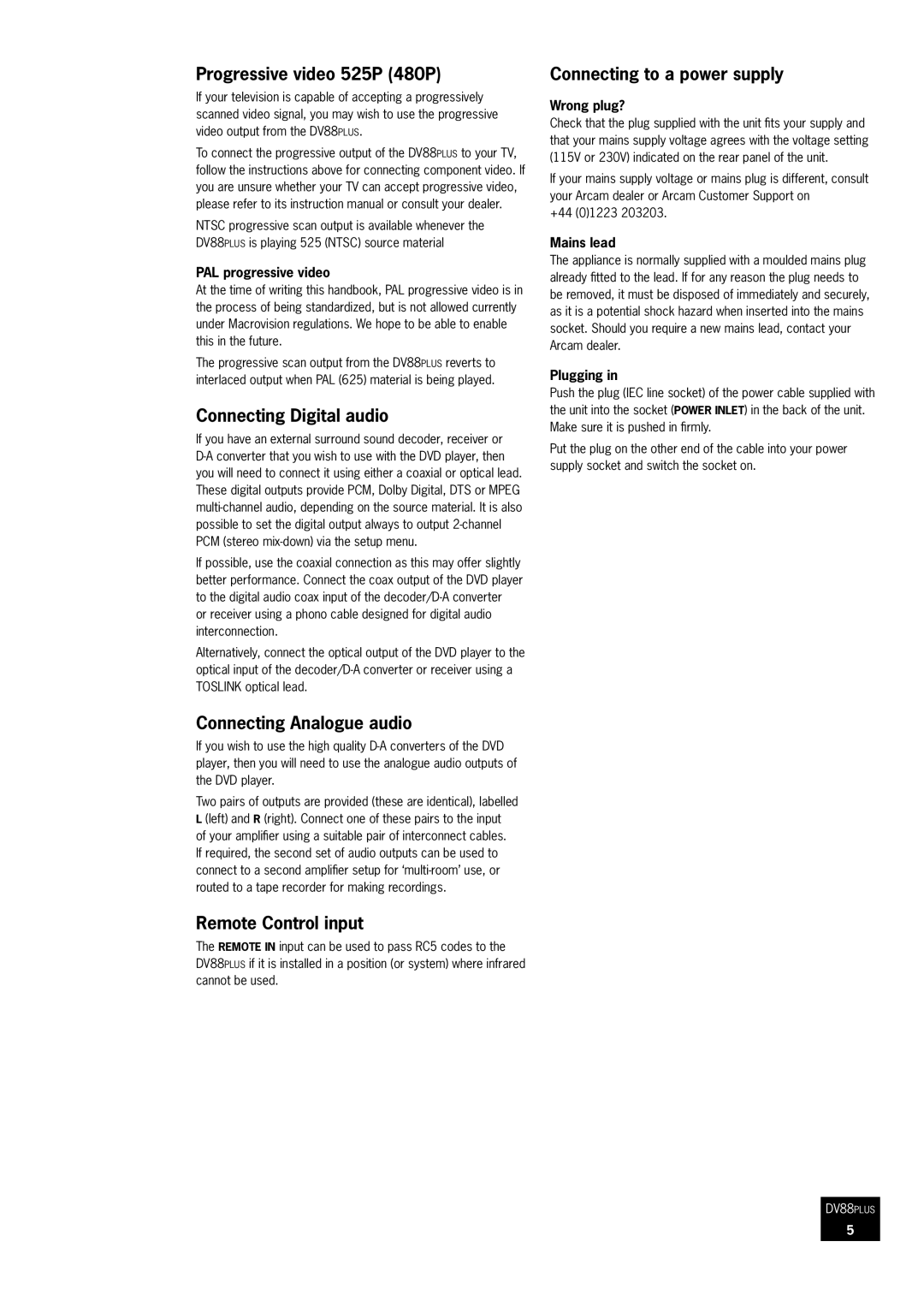Progressive video 525P (480P)
If your television is capable of accepting a progressively scanned video signal, you may wish to use the progressive video output from the DV88PLUS.
To connect the progressive output of the DV88PLUS to your TV, follow the instructions above for connecting component video. If you are unsure whether your TV can accept progressive video, please refer to its instruction manual or consult your dealer.
NTSC progressive scan output is available whenever the DV88PLUS is playing 525 (NTSC) source material
PAL progressive video
At the time of writing this handbook, PAL progressive video is in the process of being standardized, but is not allowed currently under Macrovision regulations. We hope to be able to enable this in the future.
The progressive scan output from the DV88PLUS reverts to interlaced output when PAL (625) material is being played.
Connecting Digital audio
If you have an external surround sound decoder, receiver or
If possible, use the coaxial connection as this may offer slightly better performance. Connect the coax output of the DVD player to the digital audio coax input of the
Alternatively, connect the optical output of the DVD player to the optical input of the
Connecting Analogue audio
If you wish to use the high quality
Two pairs of outputs are provided (these are identical), labelled L (left) and R (right). Connect one of these pairs to the input of your amplifier using a suitable pair of interconnect cables. If required, the second set of audio outputs can be used to connect to a second amplifier setup for
Remote Control input
The REMOTE IN input can be used to pass RC5 codes to the DV88PLUS if it is installed in a position (or system) where infrared cannot be used.
Connecting to a power supply
Wrong plug?
Check that the plug supplied with the unit fits your supply and that your mains supply voltage agrees with the voltage setting (115V or 230V) indicated on the rear panel of the unit.
If your mains supply voltage or mains plug is different, consult your Arcam dealer or Arcam Customer Support on
+44 (0)1223 203203.
Mains lead
The appliance is normally supplied with a moulded mains plug already fitted to the lead. If for any reason the plug needs to be removed, it must be disposed of immediately and securely, as it is a potential shock hazard when inserted into the mains socket. Should you require a new mains lead, contact your Arcam dealer.
Plugging in
Push the plug (IEC line socket) of the power cable supplied with the unit into the socket (POWER INLET) in the back of the unit. Make sure it is pushed in firmly.
Put the plug on the other end of the cable into your power supply socket and switch the socket on.
DV88PLUS
5
